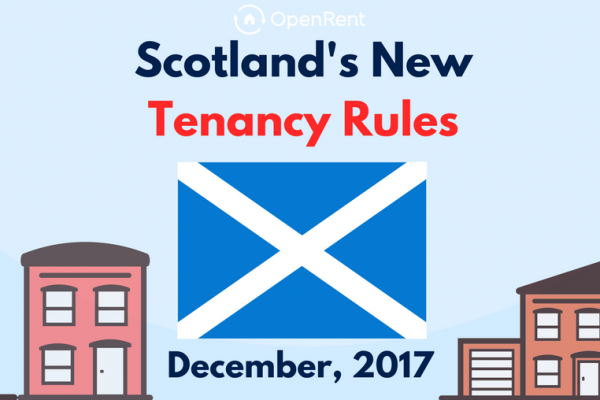Find out how the new housing bill introduced to the Scottish Parliament could impact you and your tenants if it passes into law.
The Housing (Scotland) Bill, unveiled on 26th March 2024, proposes a series of adjustments concerning rent controls, tenants’ rights regarding pets and home decoration, and a procedure for postponing evictions in specific circumstances.
If passed into law, this bill is likely to bring into effect many of the measures outlined in the Scottish Government’s New Deal for Tenants – a set of reforms aimed at enhancing the rights and living conditions of renters.
As a landlord in Scotland, there’s a chance these changes significantly impact your rental strategy, so it’s crucial that you stay informed and prepared.
- Introducing rent control areas
- Duty to consider delaying eviction
- Paying tenants damages for illegal eviction
- The right to ask to keep a pet
- No landlord approval needed for small changes
Discover Rent Now, now available in Scotland for all your landlord needs.
Start Saving TodayIntroducing rent control areas
The Scottish Government proposes that local authorities undertake an assessment of rents in their area and subsequently advise MSPs on whether to introduce rent controls across all or part of that area.
These controls would likely take the form of restrictions on rent increases, potentially through a fixed percentage rent cap or a formula designed to calculate the allowable increase.
Duty to consider delaying eviction
This proposal suggests that when a tenant is being evicted in Scotland, the authorities must consider whether it’s fair to delay the eviction. This rule would apply to all types of rented homes, whether they are private or from a council or housing association.
For example, if a person is struggling financially or if it’s a difficult time of year like winter, the First-tier Tribunal for Scotland (Housing and Property Chamber) and the Scottish Courts would be required to assess whether eviction should be delayed.
The aim is to ensure tenants are not unfairly pushed out of their homes, but it could potentially create financial challenges for landlords without adequate support.
Paying tenants damages for illegal eviction
The Housing (Scotland) Bill also proposes to make it possible for a court or tribunal to order a landlord or their agent to pay damages of between three and 36 months’ rent to a tenant if they determine that they have been illegally evicted.
You might also be interested in…
- Joint Tenancy Guide: Understanding Joint and Several Liability
- How to Serve a Section 21 Notice to Tenants
- How to Be a Live-In Landlord: Rules, Rights and Managing Lodgers
- How to Increase the Rent by Serving a Section 13 Notice
- Rent in Advance Rules Under the Renters’ Rights Bill Explained
The right to ask to keep a pet
This change, resembling what the Renters (Reform) Bill suggests for England and Wales, would grant tenants with a private residential tenancy the right to ask to keep a pet and to not be unreasonably denied.
In addition, landlords would be entitled to set conditions for approval, such as requiring an additional amount of deposit.
No landlord approval needed for small changes
Tenants would have more freedom to make their rented home feel like their own. For instance, they would be able to make small changes like hanging pictures without asking for permission.
For bigger changes, like painting the walls inside the property, the landlord would also not be able to unreasonably withhold permission.
However, for significant changes to things like fixtures and fittings, it would still be up to the landlord to decide.
As a landlord in Scotland, it’s essential to keep up with these changes and plan ahead for your rental investment’s well-being.
In case you haven’t heard, our professional-grade tenancy creation service Rent Now is now available in Scotland, saving you thousands of pounds in advertising and tenancy management costs.
Last but not least, if you’re interested in staying up-to-date with the latest developments in the private rented sector in England and Wales, take a look at our comprehensive Renters (Reform) Bill explainer here.


